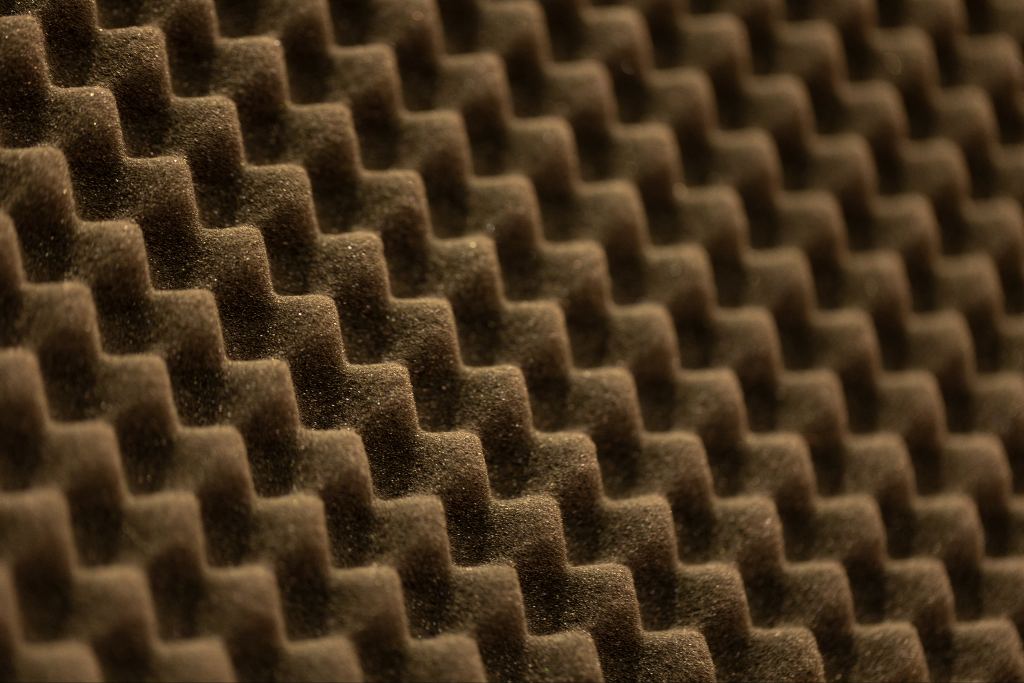How Acoustic Insulation Improves Noise Control
Sound moves through air and solid structures as waves, carrying energy that we perceive as noise. Acoustic insulation works to control this energy through absorption, reflection, and damping. Absorptive materials capture sound within their porous structure and convert it into small amounts of heat. Reflective barriers block transmission by bouncing sound waves back toward the source, while damping materials reduce vibration within walls, ceilings, or machinery. Together, these mechanisms help limit how sound travels between spaces.
The type of insulation used depends on the environment and the kind of noise being managed. Homes often need lightweight absorptive materials to reduce airborne sounds like voices, appliances, or outdoor traffic. Industrial buildings face stronger and more complex noise from machines, ventilation systems, and large surfaces that amplify vibration. In these cases, a combination of dense barriers and sound-absorbing layers delivers better performance and a more balanced acoustic environment.
Benefits of Using Sound Insulation in Homes and Industrial Spaces
Sound insulation enhances how spaces function, feel, and perform over time. Whether it’s a residential property or an industrial facility, choosing the best soundproof insulation creates environments that are quieter, more energy-efficient, and more productive.
- Enhanced Comfort and Privacy: In residential spaces, sound insulation reduces unwanted noise from outside or adjoining areas. It creates a calmer setting that supports rest and privacy.
- Improved Focus and Safety: Lower background noise in work areas improves communication and awareness. It helps maintain focus and contributes to safer, more efficient operations.
- Reduced Machinery Noise and Echo: Insulation helps manage vibration and echo from equipment or large surfaces. It keeps machinery noise contained and protects surrounding structures.
- Increased Building Value and Energy Efficiency: Acoustic insulation often improves thermal performance, too. This added efficiency supports energy savings and boosts long-term property value.

Best Sound Proof Insulation Materials for Residential and Industrial Use
Each insulation material offers distinct advantages for sound and thermal performance. The right choice depends on the environment, noise source, and desired level of acoustic balance across residential and industrial settings.
Polyurethane Foam Insulation
Polyurethane foam features an open-cell structure that effectively absorbs sound and minimizes echo. It’s commonly used in industrial settings for machine enclosures, panels, and acoustic barriers, but also performs well in residential spaces such as home theaters or recording areas. Its dual ability to control sound and regulate heat makes it versatile for mixed-use environments.
Fiberglass Insulation
Fiberglass consists of interwoven glass fibers that reduce noise by trapping air and slowing sound waves. It’s suitable for both homes and industrial buildings, offering a cost-effective balance of acoustic and thermal protection. Typical applications include wall cavities, ceilings, and HVAC ducts where consistent temperature and sound control are needed.
Mineral Wool Insulation
Dense and durable, mineral wool delivers strong absorption across a wide range of frequencies. It’s especially effective for industrial use in manufacturing plants, mechanical rooms, and areas with high heat or vibration. It’s also found in residential buildings for soundproofing shared walls or high-traffic areas due to its resilience and fire resistance.
Spray Foam Insulation
Spray foam expands to seal gaps, reducing airborne noise and improving insulation performance. It’s often used in homes to quiet walls, attics, and floors while enhancing energy efficiency. In industrial spaces, it helps seal around ducts, joints, or irregular surfaces where controlling air and sound leakage is key.
Mass Loaded Vinyl (MLV)
Mass Loaded Vinyl acts as a dense sound barrier that blocks transmission through walls, ceilings, and machinery panels. It’s widely used in industrial settings to contain noise from heavy equipment or compressors and in residential projects to improve room-to-room sound separation. Its thin yet heavy design makes it ideal for retrofits or layered assemblies.
HVAC Insulation
Noise often travels through ducts and ventilation systems. Acoustic HVAC insulation helps quiet airflow while maintaining efficiency. It’s applied in both residential and industrial systems to limit vibration, reduce fan or motor noise, and prevent sound from carrying through connected spaces.
Read: Top Soundproofing Insulation Materials for Industrial Use
Achieve Better Noise Control and Comfort with Smartech
Choosing the right insulation enhances comfort, improves energy efficiency, and supports safer, more productive spaces. Materials that combine acoustic and thermal properties deliver long-term value, reducing noise while maintaining consistent performance across different environments.
At Smartech, we provide a range of Insulation Solutions engineered for durability and reliability in both residential and industrial applications. Our acoustic polyurethane foam insulation products are designed to manage noise effectively through superior sound absorption and wide temperature resilience.
Contact us for more information or to discuss your project needs.
Looking for More Information?
Check out our Resources or Contact Us
